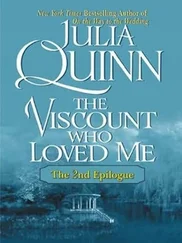“I asked you if she was still in Barcelona.”
“Yes, yes. . She’s going around with the advisers. I saw her at La Pedrera a few days ago.”
Ramón noticed that Caridad’s cigarettes were French, very perfumed, so different from the stinky cigarettes that his battalion mates gave him.
“Give me a cigarette.”
“Keep them. .” She handed him the pack. “Ramón, would you be able to give up that woman?”
He had felt that a question like that was coming and that it would be the most difficult one to answer.
“What is it that Kotov wants?” he persisted, evading the response.
“I’ve already told you: that you give up everything that we’ve been told for centuries is important, only to enslave us.”
Ramón felt like he was listening to África. It was as if Caridad’s words spilled forth from the same Kremlin tower, from the same pages of Das Kapital from which África’s came. And it was only then that he became conscious of the silence that had been surrounding them for several minutes. Caridad was África, África was Caridad, and the sacrifice of his entire past was demanded of him now as a duty, while that painful and fragile silence rested on his consciousness, feeding the fear that in the next minute his body could be broken by the mortar, the bullet, or the grenade lying in wait and destined to destroy his existence. Ramón understood that he feared the silence more than the perverse rumblings of the war, and he wished to be far from the place. Without knowing that his life hung on those few words, it was then that he said:
“Yes, tell him yes.”
Caridad smiled. She took her son’s face and, with treacherous precision, planted a long kiss on the corner of his mouth. Ramón felt the woman’s saliva mix with his, but he couldn’t find the taste of aniseed now, not even of the gin that she’d drunk the last time she kissed him; he only received the sickening sweetness of tobacco and the fermented acidity of her heartburn.
“In a few days, you’ll be called to Barcelona. We’ll be waiting for you. Your life is going to change, Ramón. A lot,” she said, and shook the dirt off of herself. “I’m leaving now. The sun is rising.”
As if it were nothing, Ramón spit, turning his head, and lit a cigarette. He walked behind Caridad toward the car, from which Luis emerged with Churro in his arms.
“Let go of the dog and say goodbye to Ramón.”
Luis obeyed her and again hugged his brother.
“We’ll see each other soon in Barcelona. I’ll take you to sign up for the Youth Brigades. You’ve already turned fourteen, right?”
Luis smiled.
“And will you sign me up for the army? All the Communists have gone to the People’s Army. .”
“Don’t rush, Luisillo.” Ramón smiled and hugged him tight. Over the kid’s head he noticed Caridad’s gaze, lost once again. He avoided the unease caused by his mother’s eyes and, in the day’s first light, made out El Escorial’s stony and hostile silhouette.
“Look, Luisito, El Escorial. I’m on the other side, up that slope.”
“And is it always this cold?”
“Cold enough to freeze your skin off.”
“We’re leaving. Get in, Luis,” Caridad interrupted her sons, and Luis, after saying goodbye to Ramón with the militiamen’s salute, went around the car to get in the passenger seat.
“If you see África, tell her I’ll be there soon,” Ramón almost whispered.
Caridad opened the car door but stopped and closed it again.
“Ramón, it goes without saying that this conversation should remain a secret. From this moment on, get it into your head that being willing to give up everything is not a slogan, it’s a way of life.” The young man saw his mother open her military cloak and take out a gleaming Browning. Caridad took a few steps and, without looking at her son, asked, “Are you sure you can do it?”
“Yes,” Ramón said just as a bomb explosion illuminated the distant mountainside, and as Caridad, with weapon in hand, placed Churro in her sights and, not giving her son any time to react, shot him in the head. The animal rolled, pushed by the force of the bullet, and its corpse began to freeze in the cold dawn of the Sierra de Guadarrama.
Winters in Sant Feliu de Guíxols had always been misty, prone to storms that came down from the Pyrenees. Summers, by contrast, are a gift of nature. The rock that rises from the sea forms a mountain that opens up there in a cove of coarse sand, and the water tends to be clearer than anywhere else on the coast of Empordà. In the 1920s, only fishermen and some faithless hermits lived in Sant Feliu, the first fugitives from urban life and modernity. But in summer Barcelona’s wealthy families, the owners of beach houses and mountain cabins, appeared. The Mercader clan was one of the fortunate ones, thanks to the textile business that had received a second wind during the Great War.
His father’s family, related to the local nobility, had accumulated wealth through several generations; like good Catalans, they had been devoted to commerce and industry; Caridad’s family were the owners of a castle in San Miguel de Aras, near Santander, and were colonists who returned from Cuba before the disaster of 1898; they had returned with their fortune in ruins, since part of it had been lost with the blacks they had to free when the end of slavery was declared on the island. Although Pau, Ramón’s father, was several years older than Caridad, in the boy’s eyes they were an enviable couple who shared a passion for horses, like good aristocrats, and just to see them take their horses out to trot, one knew they were excellent riders, she the more talented one.
That summer of 1922 was the first and only one in which the family enjoyed an entire month of sun, beach, and freedom in that cove that their memory would store as the epitome of happiness. Just two years later, when his life began its own winding path, Ramón would learn that his always budget-minded father’s decision to exchange the summer visit to the stone castle of San Miguel for the privacy of the rented house on the Empordà coast was rooted not in his children’s possible enjoyment but rather in the attempt to bring about the repair of something that was already beginning to be unsalvageable: his relationship with his wife.
It was in Sant Feliu de Guíxols that summer that his parents clung to the vestiges of their married life, and it must have been there that they conceived Luis, born in the spring of the following year. A long time later, Ramón would find out that that act of love must have been like the remains of the wave that breaks on the shore to immediately retreat into unreachable depths. Because something unstoppable had begun to grow inside of Caridad before she had conceived his younger brother: hate, a destructive hate that would always pursue her and that not only would give meaning to her own life but would also change the lives of every one of her sons to the point of devastation.
A few months before, with the latent fear caused by anything that brought him closer with his mother, Ramón had dared to ask her about the red bumps standing out on the extremely white skin of her arms and she had barely responded that she was sick. But soon enough, when the storm was unleashed and the bourgeois house in Sant Gervasi was filled with screaming and fighting, he would know that the marks had been made by the needles she used to inject herself with the heroin that she had become addicted to in a parallel life, one that she led at night, beyond the pleasant walls of the family home.
Many years later, on a Mexican night in August 1940, Ramón would hear from Caridad’s lips that it was her respectable, enterprising, and Catholic husband himself who had urged her to take the first step toward the downward spiral from which she would be rescued, after having suffered many humiliations and received an infinite number of blows, by the supreme ideal of the socialist revolution. Pau Mercader, thinking that he would help her overcome the sexual reluctance she had felt ever since they married, had invited her to accompany him to certain exclusive brothels in Barcelona where it was possible to enjoy the sight of the most daring sexual acrobatics through special windows. Here a man and a woman could participate, or two couples, or a man with two women or even three, or two women alone, all experts in erotic positions and fantasies, the men endowed with penises of an exaggerated size, and the women trained to receive natural or artificial objects of disproportionate dimensions in any of their orifices. The results of this experiment met his father’s expectations very poorly, since it caused Caridad to reject his sexual demands even more forcefully, although she took a liking to certain spirits served in those mauve-curtained, dimly lit dens, liqueurs that took away her inhibitions and, at the end of the night, allowed her to open her legs almost as a reflex. A while later, in search of those elixirs, she had begun to frequent the city’s most select bars, many times without her husband, who was increasingly called away by his absorbing business. But soon Caridad would feel that those places had an excess of that which she wasn’t seeking (men willing to inebriate her to throw her in bed) and something, still undefined, was lacking, something capable of motivating her and reconciling her with her own soul.
Читать дальше











